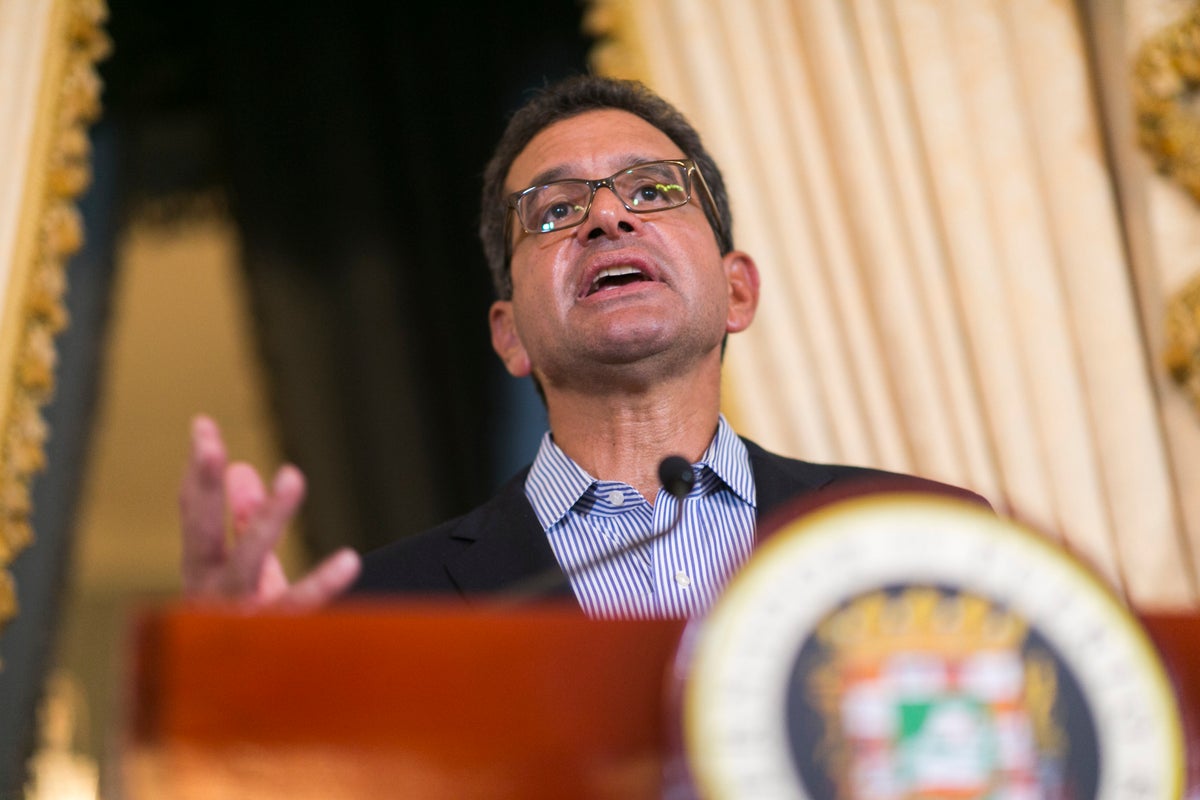
Gov. Pedro Pierluisi announced new solar energy initiatives on Tuesday during his annual state of the territory address, a speech viewed by many as critical as he fights plummeting ratings amid growing discontent over costly electric bills, government corruption and slow-moving hurricane reconstruction.
The more than hourlong speech and ceremony at the U.S. territory’s seaside Capitol was powered entirely by generators to avoid any potential interruptions given the ongoing instability of the island’s crumbling power grid.
The frail grid has been a priority for Pierluisi’s administration, which oversaw the privatization of the operation of the island’s generation, transmission and distribution of power in widely criticized moves given persistent outages.
On Tuesday evening, Pierluisi announced that the U.S. Federal Emergency Management Agency approved microgrid projects to supply 100% of power to the neighboring islands of Vieques and Culebra, which are popular with tourists.
He also announced $100 million in federal funds for a new voucher program targeting the middle class to finance up to 30% of the costs of installing battery-backed solar systems in their homes.
Pierluisi has pledged that Puerto Rico will ramp up from 3% to 40% renewable energy by the end of 2025, and 60% by 2040.
The governor also addressed concerns over ongoing government corruption, with 10 Puerto Rican mayors prosecuted by federal authorities in recent years.
He urged the legislature to approve pending bills aimed at cracking down on corruption.
“Zero tolerance and zero impunity,” Pierluisi said.
He also highlighted ongoing hurricane reconstruction efforts targeting hospitals, homes, roads, schools and other infrastructure that were battered by hurricanes Maria and Fiona.
Pierluisi noted his administration has so far helped more than 7,400 families of the 12,000 still awaiting aid for homes damaged by Hurricane Maria, a powerful Category 4 storm that struck the island in September 2017, razing the power grid and destroying or damaging hundred of thousands of homes.
Further damage was caused by Hurricane Fiona, a Category 1 storm that hit Puerto Rico’s southwest region in September 2022, sparking an island-wide blackout.
Pierluisi also unveiled a preliminary $31 billion budget, which still has to be approved by legislators and a federal control board that oversees the island’s finances. Puerto Rico announced in 2015 that it was unable to pay its more than $70 billion public debt load and then filed for the largest municipal bankruptcy in history in 2017.
Pierluisi touted his administration's achievements during the address, which comes as he prepares to run for a second term next year in what many consider will be a highly competitive race.
“It’s obvious that the campaigning began,” said Rafael Hernández, speaker of Puerto Rico's House and a member of the main opposition Popular Democratic Party. “But there’s still a lot of work to be done.”
José Luis Dalmau, president of Puerto Rico's Senate and also a member of the main opposition party, said he was puzzled by the descriptions of Pierluisi's achievements given the multiple challenges that many on the island of 3.2 million people with a 45% poverty rate still face.
“It's clear that the governor lives in another Puerto Rico,” he said.







